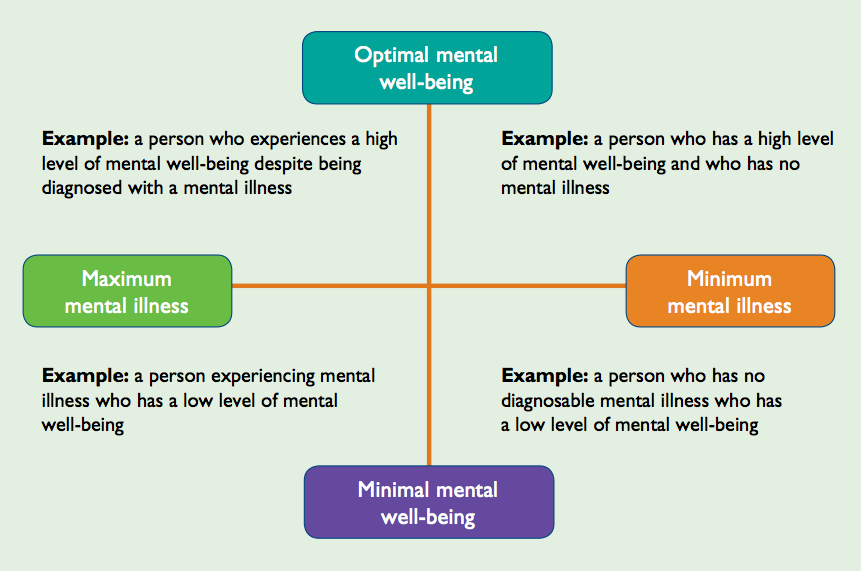Find this resource: Steele, C. M., & Aronson, J. (1995 ). Stereotype risk and the intellectual test efficiency of African Americans. Journal of Character and Social Psychology, 69( 5 ), 797811. Discover this resource: Stryker, S. (1980 ). Symbolic interactionism: A social structural version. San Francisco, CA: Benjamin/Cummings. Discover this resource: Compound Abuse and Mental Health Services Administration, Center for Behavioral Health Stats and Quality.
The NSDUH report: Smoking and mental disorder. Rockville, MD: Author. Discover this resource: Sullivan, P. F. (1995 ). Death in anorexia. American Journal of Psychiatry, 152( 7 ), 10731074. Find this resource: Thoits, P. A. (1985 ). Self-labeling procedures in mental disease: The role of emotional deviance. American Journal of Sociology, 91, 221249.
A. (2010 ). Tension and health major findings and policy ramifications. Journal of Health and Social Behavior, 51( 1 Suppl.), S41S53. Find this resource: Turner, R. J., Wheaton, B., & Lloyd, D. A. (1995 ). The epidemiology of social tension. American Sociological Evaluation, 60, 104125. Find this resource: Vancampfort, D., Vansteelandt, K., Correll, C.
A Biased View of How Does Culture Affect Mental Health
J., De Herdt, A., Sienaert, P.,. De Hert, M. (2013 ). Metabolic syndrome and metabolic abnormalities in bipolar affective disorder: A meta-analysis of frequency rates and moderators. American Journal of Psychiatry, 170, 265274. Find this resource: https://central.newschannelnebraska.com/story/42179963/boca-raton-drug-treatment-center-offers-tips-on-choosing-the-right-rehab-center Wahl, O. F. (1995 ). Media insanity. New Brunswick, NJ: Rutgers University Press. Discover this resource: Wahl, O (how can homelessness affect mental health).
( 1999 ). Mental health consumers' experience of preconception. Schizophrenia Bulletin, 25( 3 ), 467478. Discover this resource: Walker, E. R., McGee, R. E., & Druss, B. G. (2015 ). Death in mental conditions and global illness concern ramifications: A methodical review and meta-analysis. JAMA Psychiatry, 72( 4 ), 334341. Discover this resource: Whatley, C. D. (1959 ).
Social Issues, 6( 4 ), 313320. Discover this resource: Wright, E. R., Gronfein, W. P., & Owens, T. J. (2000 ). Deinstitutionalization, social rejection, and the self-confidence of previous mental clients. Journal of Health and Social Habits, 41, 6890. Find this resource: Xiong, G. L., Bermudes, R. A., Torres, S. N., & Hales, R.

How Does Exercise Affect Mental Health - Truths
( 2008 ). Usage of cancer-screening services amongst persons with serious mental health problem in Sacramento County. Psychiatric Providers, 59( 8 ), 929932. Discover this resource: Yarrow, M. R., Schwartz, C. G., Murphy, H. S., & Deasy, L. C. (1955 ). The mental significance of psychological illness in the household. Journal of Social Issues, 11( 4 ), 1224. (p.
Mental disorder, stigmatization, discrimination, help-seeking Scientists typically suggest that the stigma attached to psychological disease is one of the major confounding consider help looking for from mental health professionals. Psychological health problems are medical conditions that interfere with a person's thinking, sensation, mood, ability to associate with others, and everyday operating [1].
There are a number of distinct constructs that make up stigma. These include stereotype, bias, and discrimination. A stereotype is a belief held about a certain group of people. For instance, believing that all individuals with a detected psychological disease threaten is a stereotype. Bias is an arrangement with the stated stereotype that results in an unfavorable psychological response [4].
What Does What Can Affect Mental Health Do?

An example of bias may be agreeing that individuals with mental disorder are certainly dangerous, causing a psychological reaction such as fear or anger. Discrimination is the behavioral action to prejudice, which might consist of, for example, avoiding an individual with psychological illness since of the worry from the prejudice and the belief that the individual is unsafe [4].
Individuals with mental disorder were thought to be mentally retarded, a public annoyance, and hazardous. Less than half of the individuals thought that such people might be treated beyond a healthcare facility and only 25% thought that they could work regular tasks. Poor knowledge about mental health problem likewise prevailed among the individuals.
Just 17% reported that they might maintain a relationship with a person with a mental disorder. The authors concluded that there is poor knowledge about the cause and nature of mental disorder and that education is needed so that preconception towards those with a psychological disease can reduce [6] Stigma is specified as a mix of viewed dangerousness and social range.
All About What Does Deteriorating Mental Health Affect
Wherever they go, whatever they do, the pressures of conforming to a society that neither accepts nor understands them can be overwhelming. The effect of preconception must appear to be as hard to overcome as the direct effects of the disease itself [7] Just by thoroughly understanding the origins of preconception can society's views towards people with mental disorder be altered.
These people are likewise believed to be very dangerous by others in society [8] Throughout the primitive period, mental disorder was straight connected to religion. Hinshaw and Cicchetti 9 discussed that dating back 500,000 years individuals put circular holes in the skulls of individuals believed to have a mental disorder in order to http://www.wicz.com/story/42275058/treatment-center-near-lake-worth-helps-people-recover-from-drug-addiction let the fiends out.
In the early Greek times the supernatural beliefs considered causes for psychological health problem continued [10] In ancient Greece "Hippocrates believed that unusual habits originated from internal physical causes, especially imbalances of the 4 standard fluids (yellow bile, black bile, phlegm, and blood) [9]. Hippocrates also believed that the brain was responsible for mental and psychological purposes.
How Does Mental Illness Affect Relationships Things To Know Before You Buy
Society used exorcisms, abuse, death by fire, and starvation to rid the individual of evil. Hospitals for the ridiculous began to establish in the 16th century. The treatment in these asylums was cruel and inhumane [9] The fear of individuals with mental disorders in other places made the variety of asylums increase.
Pinel required the removal of chains on prisoners in asylums. He thought that medical professionals need to treat individuals with mental disorders [11] The early 20th century included an increase in beliefs of a biological basis for mental disorder, which Hinshaw and Cicchetti [9] explained. The Psychological Health movement, which motivated the gentle treatment of people detected with mental health problems, was established in 1908 [11,12].
The 2nd half of the 20th century concentrated on improving psychotropic medications and fighting preconceptions [9] These treatments all come from the biological model that was primary throughout this period of history. Deinstitutionalization, a time duration when asylums and institutions were closed and clients were moved into the neighborhood, gained attention in the 1960's [9].
Not known Incorrect Statements About How Does Mental Health Affect Physical Health
Making use of medications to deal with mental diseases triggered a drop in the number of patients in mental medical facilities. Although there were lots of benefits to the deinstitutionalization process, a major problem with this motion is that a lot of the patients were not prepared to operate separately in the community due to the fact that they had resided in organizations for the majority of their lives.
They were avoided by the basic population and typically needed to turn to crime in order to support themselves. At this time, the government mandated using neighborhood psychological health centers. By developing centers of take care of the psychologically ill, it was believed that they would have a much better opportunity of ending up being adjusted into a typical function in society.
As of today there is not one appropriate approach of treatment nor is any one type the basic [10] Treatment, however, will not stop the forces of misinformation that lead to the production of stigma [9] In order to comprehend the relationship between stigma and mental disease, the origins of stigma must be defined.